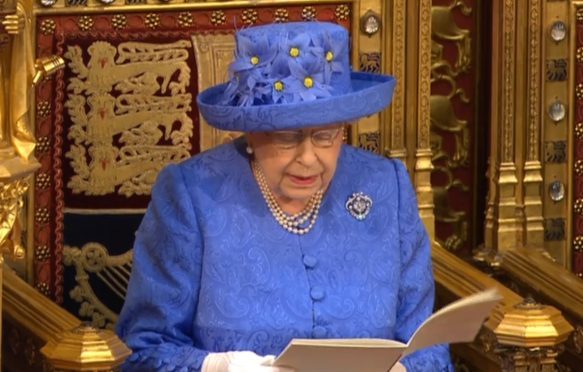Proposals to return access to and management of UK waters to British fishermen have been outlined in the Queen’s Speech.
A fisheries bill will be introduced to enable the UK to set its own quotas from the point of Brexit.
The government’s programme also includes an agricultural bill to “provide stability to farmers as we leave the EU”.
This will set out measures to ensure an alternative system is in place to support the sector as the UK leaves the Common Agricultural Policy.
Much of the Queen’s Speech, the first by a minority government for 40 years, is focused on preparing for the UK’s withdrawal from the EU.
A chastened Theresa May, significantly weakened since failing to secure a majority in the general election, said ministers would respond to voters’ message with “humility and resolve”.
She added: “We need to get Brexit right. That means getting a deal which delivers the result of last year’s referendum and does so in a way that commands maximum public support.
“We are clear we are going to see Brexit through, working with parliament, business, the devolved administrations and others to ensure a smooth and orderly withdrawal.”
Unusually, this Queen’s Speech sets out the government’s agenda for the next two years, rather just one, to cover the Brexit timetable.
It sets out plans for a repeal bill to convert EU law into UK law, a customs bill to ensure a “standalone UK regime on exit” and a trade bill to create a framework allowing the UK to operate an independent trade policy.
It also includes an immigration bill to allow for the repeal of free movement of people and make the migration of EU nationals and their families subject to UK law upon Brexit.
More generally, the speech sets out plans for a space industry bill to create new powers to license a range of new commercial spaceflight, including vertical launched rockets, space-planes, satellite operations and spaceports.
It will also provide for a regulatory framework to manage the risks involved.
Additionally, there are plans to carry out a review of the counter-terrorism strategy and establish a commission for countering extremism.
Following the devastating fire at Grenfell Tower in London, an independent public advocate for all public disasters will be formed.
Many of the commitments set out in the controversial Conservative manifesto have been left out of the programme, including the proposed reforms to social care in England, although a consultation will still go ahead.
Changing the triple lock on pensions to a double lock and plans for new grammar schools in England – a cause close to Mrs May’s heart – are also notably absent.
Without a majority, the Tory leader, whose government will have to survive, vote by vote, could not risk including any measures considered to be too divisive.
While farming and fishing are devolved, it remains unclear whether the UK or Scottish government will be responsible for the powers that come back from the EU.
But the speech pledges to “consult widely with the devolved administrations on the appropriate extent of any legislation”.
Mrs May has also promised to “take seriously our responsibility to govern for the whole UK”.
